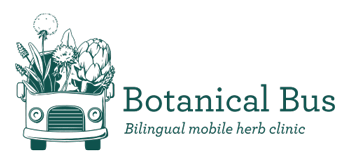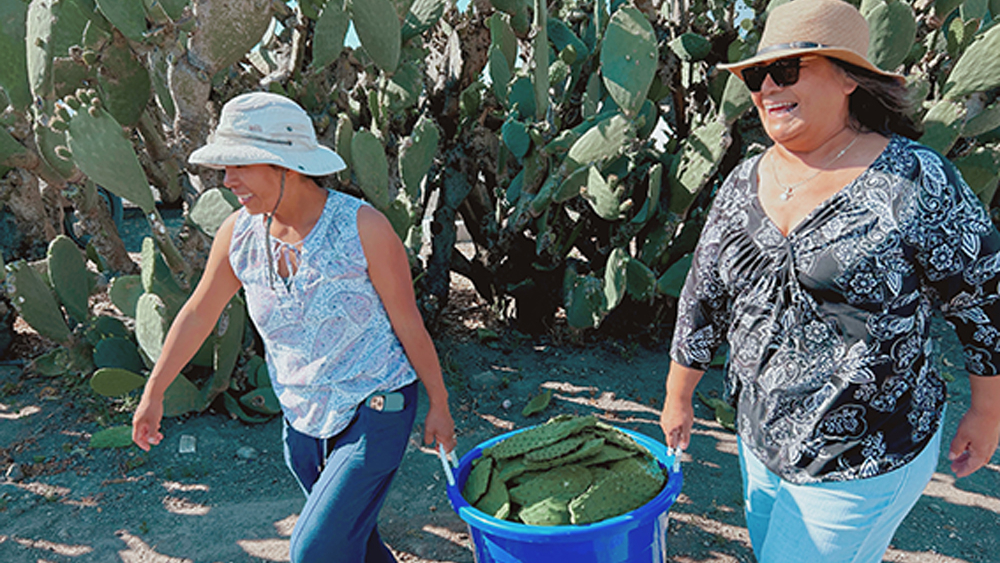Let me tell you a story about how plants connect us to each other and to our deepest sense of wellbeing. In a system that prioritizes individualism as productivity, we can lose touch with our intertwined roots. Interdependence underpins all healthy ecosystems. We need each other to feel good. The plants show us that.
It’s a Thursday afternoon and I have a couple calls to make before I go home to confirm staffing for an upcoming wellness fair at Korbel Vineyards. “Hola Juliana, cómo está usted [Hi Juliana, how are you],” I begin.
Juliana joins The Botanical Bus as founder of the Botanical Bus, Presente para Nutrirnos [Present to Nourish Us] program, wellness workshops that center whole, accessible Indigenous foods and traditional recipes for type two diabetes prevention and care.
At a Farmworker Clinic, a client had invited us to the land where her husband tends to harvest Nopales. When I ask if Juliana can participate, she happily agrees, excited to take part in this generous invitation from a Botanical Bus client. Juliana… ¡Presente!
The thick juicy green pads and crimson fruit of Nopal [Prickly Pear Cactus], high in antioxidants, anti-inflammatory quercetin, fiber, vitamins and minerals, can help control blood sugar level. I smile because Nopales have guided the work of our organization since our foundation. For Latine and Indigenous people, nourishment is synonymous with Nopal. We trust her. We identify with her. We find strength in our knowledge of her cultural importance and healing properties.
Juliana grew up wild harvesting Nopales outside of a small town in La Mixteca, Oaxaca. She shares, “I would pierce the center of the cactus pads and spear them on two long sticks to carry over 20 at a time home with me to be peeled. We eat Nopales raw, roasted, stewed or with black beans.”
She brings her knowledge of nutrition and powerful testimony of the impact of type two diabetes in her community, to centering Indigenous foods as medicine.
A powerful care plan is set into motion. I close my computer. There are no bounds to the work that is done beyond the limits of colonial individualism. Love for our community just grows and continues to nourish us. We will connect with our client, head out to the land for the harvest and prepare a Nopales salad for the 200 farmworkers and their families at the Korbel wellness fair.
My next call is to Doña Norma, who co-facilitates wellness workshops with Juliana. Norma manages her own diabetes with a whole-food, nutrient-dense diet full of fresh plants. She shares her recipes and lovingly prepared foods at our clinics. “It’s best we harvest the Nopales the day before we serve them at the fair,” she suggests. Norma… ¡Presente!
In accepting our client’s offer of land access, we honor reciprocity in caregiving. In harvesting abundant nutritious plants, we share in the generosity of mother earth. In preparing and sharing cultural foods, we connect community to our common roots. We are mapping our interconnectedness and in the process, building systems of caring for each other that are profoundly effective and fulfilling.
“I know that the farmworkers and their families will feel our love in the Nopales,” concludes Juliana. Thank you, Nopal.

